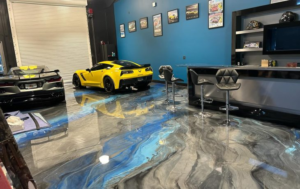What Happens When Your Limo Business Fails Vehicle Inspections Without Proper Software?

Running a limousine business in the United States is about more than providing luxury transportation — it’s about compliance, safety, and maintaining a flawless reputation. Every state has strict inspection and licensing requirements for commercial and private hire vehicles (PHVs). You can read more about the history and regulations of limousines on Wikipedia.
Failing an inspection can cause major setbacks for your limo operation — from suspended permits to lost revenue. The good news? With the right fleet compliance and management software, you can avoid these failures and keep your vehicles running legally and profitably.
Why Vehicle Inspections Matter for Limo Businesses
In the U.S., state and federal agencies such as the Department of Transportation (DOT) and local licensing authorities require regular inspections to ensure vehicles meet safety, emissions, and operational standards.
When a limo company fails a required inspection, it can lead to:
- Temporary or permanent suspension of operating permits
- Hefty fines (up to $5,000 per violation in some states)
- Insurance complications or cancellations
- Lost customer trust and poor online reviews
- Disrupted bookings and revenue loss
According to the Federal Motor Carrier Safety Administration (FMCSA), around 23% of commercial vehicles in the U.S. fail their first inspection — often due to missed maintenance, expired documentation, or incomplete safety checks.
For limo businesses, even one failure can cause clients and corporate accounts to look elsewhere.
Common Reasons Limo Businesses Fail Inspections
Many U.S. limousine operators still rely on manual record-keeping or outdated systems — which makes staying compliant much harder. Here are the most common causes of inspection failures:
- Missing Maintenance Logs
Missed oil changes, brake replacements, or tire rotations can trigger automatic inspection failures. - Expired Permits or Insurance
Forgetting to renew DOT permits or commercial insurance policies is one of the top compliance violations. - Disorganized Paperwork
Manual files or spreadsheets make it easy to lose inspection records, repair receipts, and driver documentation. - Emission Test Failures
In states like California and New York, emissions standards are strict, and even minor issues can cause immediate rejection. - Fleet Oversight Gaps
Larger fleets often miss critical updates — such as which vehicles need inspection or registration renewal — due to poor tracking systems.
How Compliance Software Prevents Inspection Failures
Modern fleet management and inspection software helps limo companies stay compliant automatically.
Key Features That Protect Your Fleet:
✅ Automated Compliance Tracking — Get instant alerts before inspection, insurance, or permit deadlines.
✅ Digital Maintenance Records — Store service history, safety checklists, and driver reports in one place.
✅ Custom Inspection Checklists — Match each vehicle’s requirements to state-specific regulations.
✅ Real-Time Fleet Analytics — Identify recurring maintenance issues before they trigger an inspection failure.
✅ Audit-Ready Reports — Generate documentation instantly when DOT or local authorities request it.
A 2024 FleetNews USA study revealed that transportation companies using digital fleet compliance tools reduced inspection failures by over 58% and cut maintenance downtime by 42%.
That’s why innovative platforms like LimoFlow are now leading the way in limo fleet management. With automated reminders, compliance dashboards, and digital inspection records, LimoFlow helps operators avoid missed renewals, maintenance lapses, and inspection delays.
To explore how it stacks up against other software options, read:
👉 Best Limo Software in 2025: Why LimoFlow Is the #1 Choice for Limo Operators
The Cost of Failing Inspections Without Software
Failing an inspection doesn’t just stop your vehicles — it stops your business. Here’s how compliance software makes the difference:
| Impact Area | Without Software | With LimoFlow or Similar Software |
| Vehicle Downtime | 3–7 days per failed vehicle | Less than 1 day (with proactive alerts) |
| Revenue Loss | $700–$1,200 per day | Minimized with predictive maintenance |
| Admin Burden | Manual paperwork and calls | Automated digital reporting |
| Compliance Risk | High (missed renewals) | Low (real-time tracking) |
| Customer Trust | Damaged reputation | Strong, consistent reliability |
Missed inspections can even result in temporary DOT deactivation, meaning your limo fleet can’t legally operate. For U.S. businesses that rely on airport transfers, corporate travel, or events, even one day of downtime can have a lasting financial impact.
And remember — compliance doesn’t stop with vehicle checks. Your reservation system also plays a crucial role in keeping your business running smoothly. Learn how automation connects to compliance in our guide:
👉 Streamlining Reservations for Limo Businesses
📊 Real-World Example
A luxury limo service in Miami, Florida, operating 20 vehicles, failed three consecutive state inspections due to missing service logs and expired insurance documents.
After switching to a digital fleet compliance platform, they achieved:
- 100% inspection pass rate within a year
- 45% less downtime due to predictive maintenance alerts
- Higher client retention thanks to improved reliability
Their success story mirrors what many U.S. limo operators experience when adopting systems like LimoFlow — total control over compliance, safety, and scheduling.
What Limo Businesses Should Do Next
To stay compliant and profitable in the U.S. market:
- Adopt automated inspection management software.
- Set up digital reminders for insurance, registration, and inspection renewals.
- Use state-specific checklists to ensure every requirement is covered.
- Train staff to use compliance dashboards effectively.
- Monitor analytics to catch maintenance issues before they become violations.
These proactive steps help you maintain full DOT compliance, avoid penalties, and build long-term customer trust.
FAQs: What People Also Ask
1. What happens if my limo fails a vehicle inspection in the U.S.?
Your operating permit may be suspended until the issue is resolved. Repeated failures can lead to DOT fines or permanent revocation.
2. How often do limos need inspections?
Most states require inspections annually or semi-annually, though requirements vary by state and vehicle class.
3. Can I still operate while waiting for re-inspection?
No. Operating without a valid inspection or permit is illegal and may lead to insurance cancellation and legal penalties.
4. What’s the best software for compliance and inspection tracking?
Platforms like LimoFlow provide automated reminders, cloud storage for inspection records, and integrated reporting to help fleets stay inspection-ready year-round.
5. How can I prepare my limo fleet for inspection?
Perform internal pre-inspection checks, maintain digital service logs, and ensure all documents — insurance, registration, and maintenance — are current.
Final Thoughts
Failing a vehicle inspection can derail your limo business — but it’s completely avoidable with the right technology.In the U.S. transportation industry, digital compliance isn’t optional anymore — it’s a competitive advantage. Start automating your inspections, maintenance, and compliance workflows today with solutions like LimoFlow, and keep your luxury fleet on the road safely, efficiently, and profitably.






